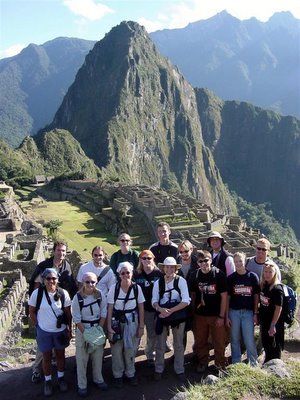
Contact: silmanmr@wfu.edu
Tropical Biodiversity is an in-depth, hands-on field course exposing students to the rich and varied ecosystems of the tropics, from absolute deserts to glaciers to tropical rain forest. It travels to the largest tropical wilderness left on the planet, and the course will take us through the spectrum of tropical ecosystems and put us in some of the wildest and most pristine areas left on the planet. In these living classrooms we will combine lectures on the history, generation, maintenance, and future of tropical biodiversity with field projects on a variety of plant and animal topics, from conservation to geology to tree diversity to primate behavior. We'll also get first hand experience in tropical conservation. In 2015 we will have addition scholars and conservation biologists on the trip as resources.
Check out the student's blog from a past course for a student's perspective.
The Places
After arriving in the capitol city in Lima, we’ll travel by bus through the world’s driest desert to Paracas National Park. Located on a peninsula in the Pacific Ocean, Paracas is a rich-upwelling zone teeming with bird and mammal life. Sea otters, sea lions, penguins, boobies, and the spectacular Inca Tern are among a few of the animals we’ll see there. The abundant marine life is juxtaposed with absolute desert, receiving less than 2mm of precipitation a year. This has led to a unique and fragile flora that lives exclusively on moisture harvested from coastal fog on the tops of the highest hills.
Leaving Paracas, the course flies over the Andes to the imperial city of the Inca Empire, Cusco. There we will travel to the Sacred Valley of the Incas and Machu Picchu, giving us a chance to see and study the unique mammal and bird fauna of the high Andes, from the relatives of camels such as llamas, vicuñas, alpacas, and the pika-like vizcacha to torrent ducks and Andean condors. We will overnight at Machu Picchu, affording students a chance to explore this magnificent ancient city in depth.
